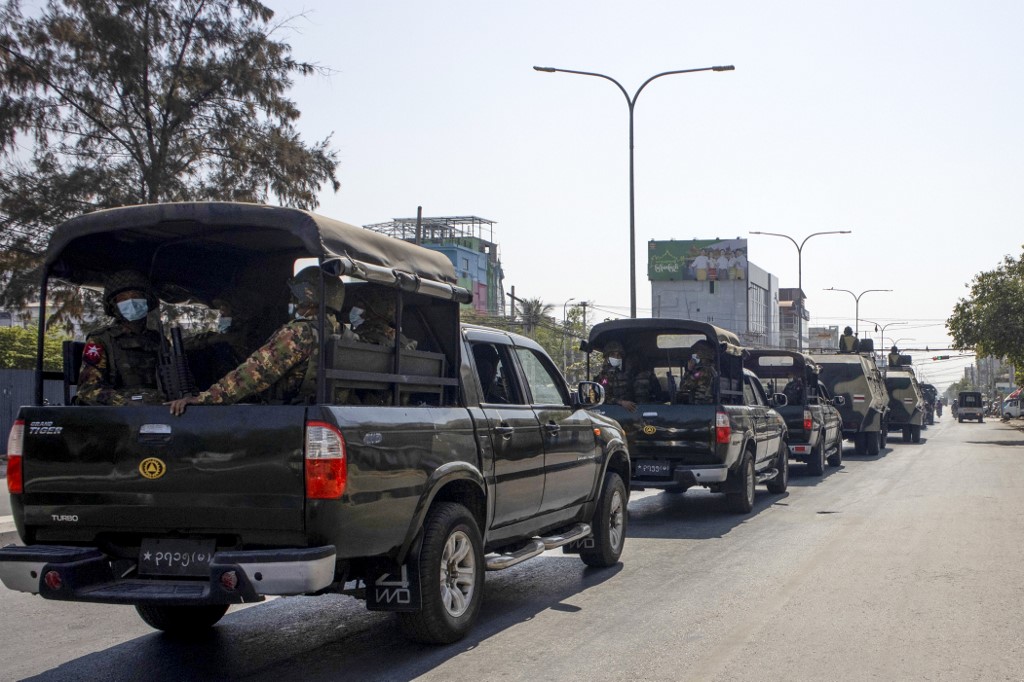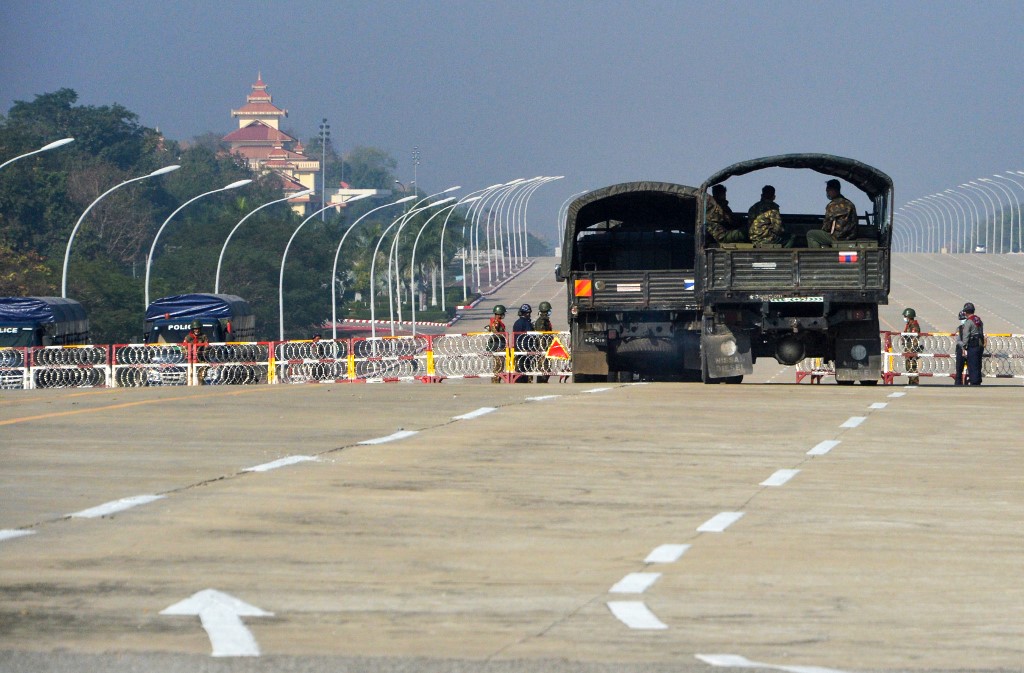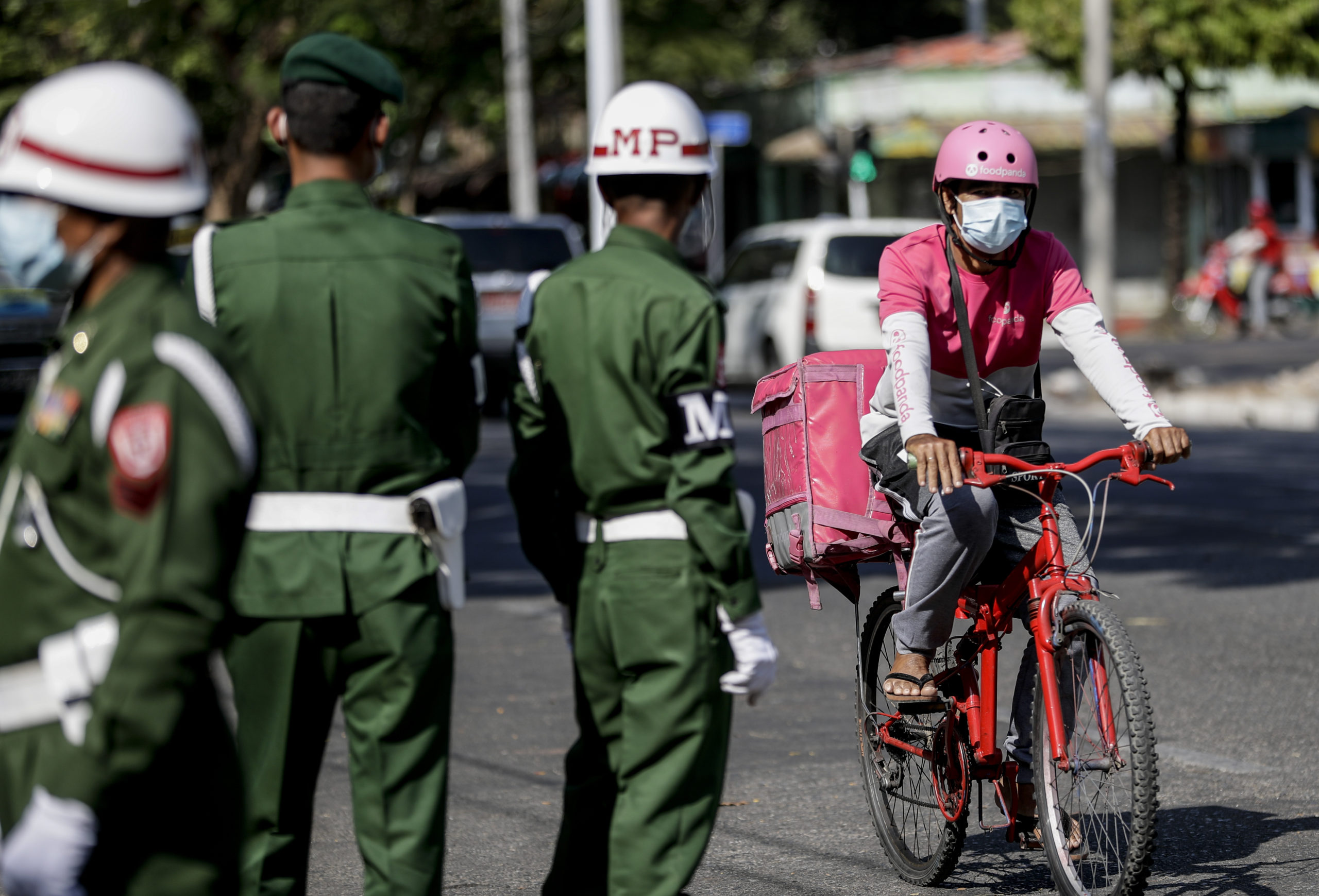Waves of fear and uncertainty rippled through the streets of Myanmar on the morning of February 1, as news broke of the arrests of multiple politicians, including President Win Myint and State Counsellor Aung San Suu Kyi, and ethnic leaders from around the country and the return of a military government.
For many, the news was unsurprising as rumours of a coup had begun circulating late last week, when military spokesperson Major General Zaw Min Tun declined to rule out the possibility of military action ahead of parliament reconvening on February 1. Despite a placating statement from the military published over the weekend attempting to ease panic, by Monday morning, fears became reality.
As tumultuous as these developments were, they held a grim familiarity for many. Those who live in Myanmar or are familiar with the country’s politics know all too well how much power the military wields. While experts see the military’s motivation and planning in the timing of the coup, questions remain as to how those within Myanmar, as well as internationally, will respond, and what this could mean for the fledgling democracy.
“This has been building up for a while,” said Yanghee Lee, the former UN Special Rapporteur on human rights in Myanmar. Lee was tasked with researching and monitoring rights violations in Myanmar during her six-year mandate beginning in 2014 – a role that won her no fans among the government and military as she was banned from the country in December 2017, accused of bias in her assessments.
She believes military Commander-in-Chief Min Aung Hlaing’s upcoming retirement, allegations of election fraud amid parliament’s first meeting, and the country’s recent isolation in the pandemic were all factors in yesterday’s events.
“The fraudulent elections, I think that was just an excuse,” Lee said, referring to the Tatmadaw’s claims of electoral irregularities in the November national polls, a landslide victory for the now-deposed National League for Democracy (NLD).
Sai Kyi Zin Soe, a researcher at the University of Sydney currently based in Yangon, notes that, while allegations of voter fraud in the November 8 elections may have contributed to the military’s power grab, this was a calculated and strategic effort, as can be seen most notably by the overnight appointment of new cabinet ministers.
“If you look at institutions that have been supporting the military movement for a long period of time, they have been well organised. The coup was well-staged and well-prepared,” explained Sai Soe.
Mary Callahan, author of Making Enemies: War and State Building in Burma and professor at the University of Washington, agrees it’s likely that the date was chosen for a reason.
The military had called for the postponement of the convening of parliament until the voting irregularities they alleged could be resolved. The NLD chose instead to move ahead as planned.
“In a lot of ways February 1 brought to a head the almost inevitable conflict between the two parts of the government as embodied in the 2008 constitution – the military side and the civilian side,” Callahan said.

The relationship between the military and its political proxy, the Union Development and Solidarity Party (USDP), and the civilian government headed by Suu Kyi’s NLD, has always been strained, with the military holding onto considerable power even amidst ostensibly democratic reforms.
While the 2015 elections delivered a decisive victory to the NLD, the unusual circumstances surrounding the 2020 elections – namely Covid-19 restrictions, voter de-registration among certain ethnic groups, and violence in several townships – allowed the military to cultivate a narrative alleging widespread voter irregularities, culminating in Monday’s coup d’état.
But beneath the military’s claims of voter irregularities, there has also been speculation that Myanmar’s commander-in-chief, General Min Aung Hlaing, who was slated to leave his position in mid-2021 without the possibility of renewal, may have orchestrated Monday’s coup in an effort to cling to power.
Myanmar political observers have noted the army chief’s vast and lucrative business holdings, as well as his family’s enterprises, could be compromised by stepping down, making any loss of power an unattractive prospect. However, by declaring a year-long state of emergency, he may have found a way to extend his tenure.
The one thing that has been clear for the last fifty years is this military doesn’t split
Despite Min Aung Hlaing’s absolute authority over the military, his power is not, necessarily, enshrined. There is speculation that other military leaders – including Than Shwe, who oversaw Myanmar as head of state for nearly two decades starting in 1992 as Chairman of the State Peace and Development Council junta – may be dissatisfied with his leadership, potentially leading to riffs within the unit in upcoming months.
“I know that a lot of the military leadership has been unhappy with Min Aung Hlaing, he was seen as very greedy and corrupt,” Lee said. “But at the same time many have gained economic power through Min Aung Hlaing and engagement with Min Aung Hlaing, and so it’s too early to say for now.”
However, according to Callahan, Myanmar’s historic record of a unified military front during political crises demonstrates that it’s unlikely to fracture in light of recent events.
“Ultimately, there’s a way in which the highly vertical rigid hierarchical chain of command in the military is quite reflective of Burmese culture,” Callahan said.
She adds that during the period when other countries were educating their intellectuals abroad in political science and economics, Myanmar was closed off, preserving the importance of hierarchy in the monastic world, government, and army.
“The one thing that has been clear for the last fifty years is this military doesn’t split,” she said.

The success of Monday’s coup was also aided by the isolation brought about due to the Covid-19 pandemic, in which international travel has been widely banned and foreign visas, particularly for international journalists, have been suspended. Lee says Myanmar is among several examples globally of authoritarian leadership using Covid-19 to further restrict measures on movement, meetings, and communication.
“You see this happening around the world. Some very authoritarian leadership have used this pandemic as an excuse to crackdown on people and the same thing goes for Myanmar,” Lee stated.
In the aftermath of the coup, the military has stated they will keep the pandemic under control as part of their plan in their upcoming year of power. Lee says she’s concerned that this could mean limited access to testing and treatment.
“That should worry us. That should worry the international community,” Lee said. “Exactly what do they mean by ‘taking a grip on Covid-19’?”
While the military looks to consolidate its total hold on power, many are speculating as to what might come next. Many of those who were arrested during the morning raids have yet to be released, and others who avoided detention are fearful that they could be next. The current number of arrests from Monday’s coup stands at 42 officials and 16 civil society activists according to latest figures from the Assistance Association for Political Prisoners, not counting hundreds of NLD parliamentarians confined to government housing in the nation’s capital for more than a day after the military took power.
Weighing the risk of counter efforts, including protests, is something that leaders and activists around the country are taking very seriously.

“We don’t know anything yet. It is very difficult to predict, it depends on how the public responds,” explained a Muslim civil society leader based in Yangon, who wished to remain anonymous. “If we respond with protests, [the military] will arrest a lot of people. Right now we are doing nothing, except posting on Facebook. If we start responding, they could start arresting us.”
Myanmar’s civil society has, since the 2015 elections, managed to carve out a space for advancing human rights causes around the country. Now, under a military government, the feasibility of this important, local-form activism is in jeopardy.
“One thing I am worried about is that the military has a problem with civil society. They don’t like the kinds of activities we do, such as research and citizenship advocacy,” the Muslim civil society leader said. “They believe in Burmese Buddhist nationalism. That’s why I’m worried that they could abolish civil society organisations.”
Even within Myanmar’s civil society, there isn’t currently a unified front that could act as a resistance to the military, but there are groups beginning to form online that could take action in the coming weeks. Some users took to Facebook turning their profile pictures black in quiet opposition, while doctors wore black ribbons on Tuesday – a recurring symbol of protest among Myanmar medical workers. Meanwhile, a group of physicians at state-run hospitals began circulating a pledge to strike in resistance to the coup.
“What I foresee, in the coming weeks, is a movement like in 1988, where there wasn’t any particular leader. Rather we gathered around the concept of human rights and democracy,” Sai Soe noted.
Even though the West was very down on Aung San Suu Kyi for her response to the Rohingya crisis and her defence at the International Court of Justice, nobody wants to see an elected government overthrown
However, given the uncertainty surrounding internet access and coordinated efforts, many are also looking to the international community for support. While countries around the world have issued statements condemning Monday’s coup, those in Myanmar are stressing that words aren’t enough – concrete action is required.
One anticipated development is the return of international economic sanctions, similar to those in place prior to the 2010 elections, which are credited with helping support efforts to ease some of the grip wielded by the military on power in Myanmar.
“Targeted sanctions, I think, had started to work. It put a lot of pressure on the military, especially Min Aung Hlaing, but it wasn’t going fast enough,” Lee explained.
Sai Soe also notes the untapped potential for multilateral pressure and involvement within the international legal apparatus.
“If the international community could persuade some kind of ICC [International Criminal Court] case against targeted individuals, especially regarding the atrocities and crimes against humanity, this would put pressure on the military.”
While Suu Kyi has fallen as a beacon for democracy over her failure to denounce the military’s role in the genocide of the Rohingya, both Lee and Callahan agree that her tarnished reputation won’t deter international solidarity with future democratization in Myanmar.
“Even though the West was very down on Aung San Suu Kyi for her response to the Rohingya crisis and her defence at the ICJ [International Court of Justice],” Callahan said, “nobody wants to see an elected government overthrown.”


